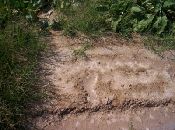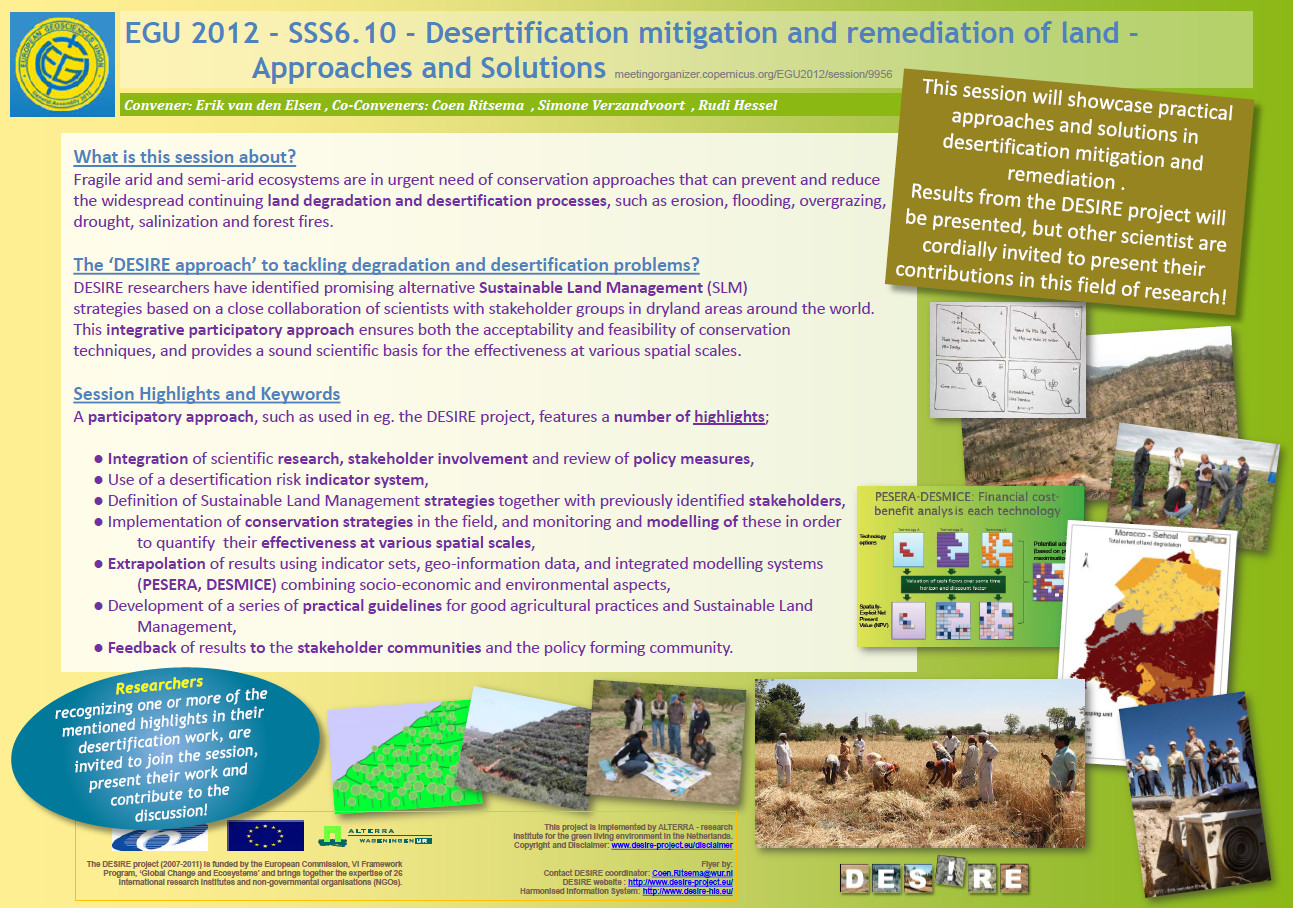Sharing the science
|
... from the DESIRE Project at the European Geosciences Union 2012 Annual Conference
The DESIRE Project has helped dryland stakeholders around the world to choose and trial new approaches and technologies for sustainable land management and also has many new results to share with the scientific community. On Thursday 26 April 2012, the science was represented at the annual European Geosciences Union conference in Vienna in
Session SSS6.10: Combat desertification and soil degradation in arid and humid environments and assess impacts on ecosystem services - approaches and solutions.
There were three sub-topics:
|
|

Acknowledgement
The DESIRE project was
|
DESIRE brought together the expertise of
26 international research institutes
and non-governmental organisations.
This website does not necessarily
represent the opinion of the
European Commission. The European
Commission is not responsible for
any use that might be made of the
information contained herein. 
 Sharing the science
Sharing the science